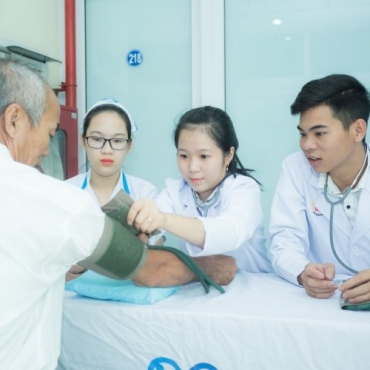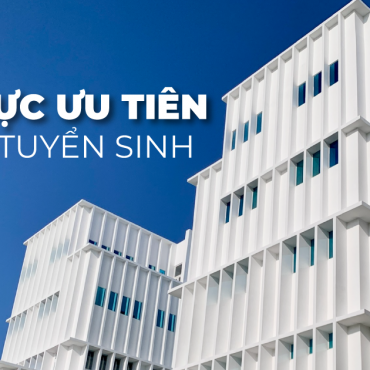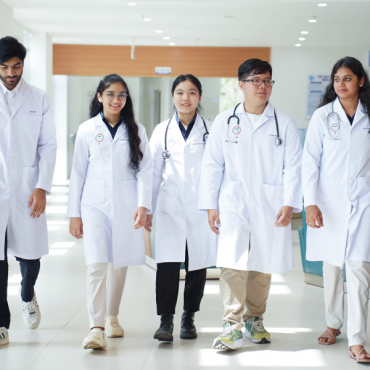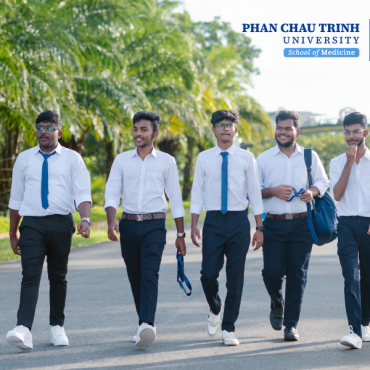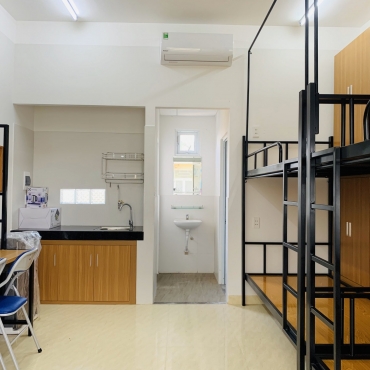Contact Admission
International Collaboration
The Cadaver Lab
Today, it is undeniable that technology has introduced numerous effective tools to enhance the teaching and learning of anatomy, such as 3D anatomy software and virtual reality simulation systems. These technologies allow students to visualize and explore the human body's structure in a vivid and interactive way. However, the study of anatomy through donated cadavers continues to hold a significant and irreplaceable role.
Anatomy is a mandatory and essential subject for students in health sciences, particularly in medicine and dentistry. Understanding the structure and function of the human body not only helps students identify its components but also establishes a solid foundation for developing clinical skills, supporting diagnostic and therapeutic practices.
Recognizing its importance, Phan Chau Trinh University has invested in and established a cadaver lab since the inception of its medical training programs. To date, the university has received 10 donated cadavers and over 30 registered cadaver donation applications, ensuring a valuable resource for the Department of Anatomy.
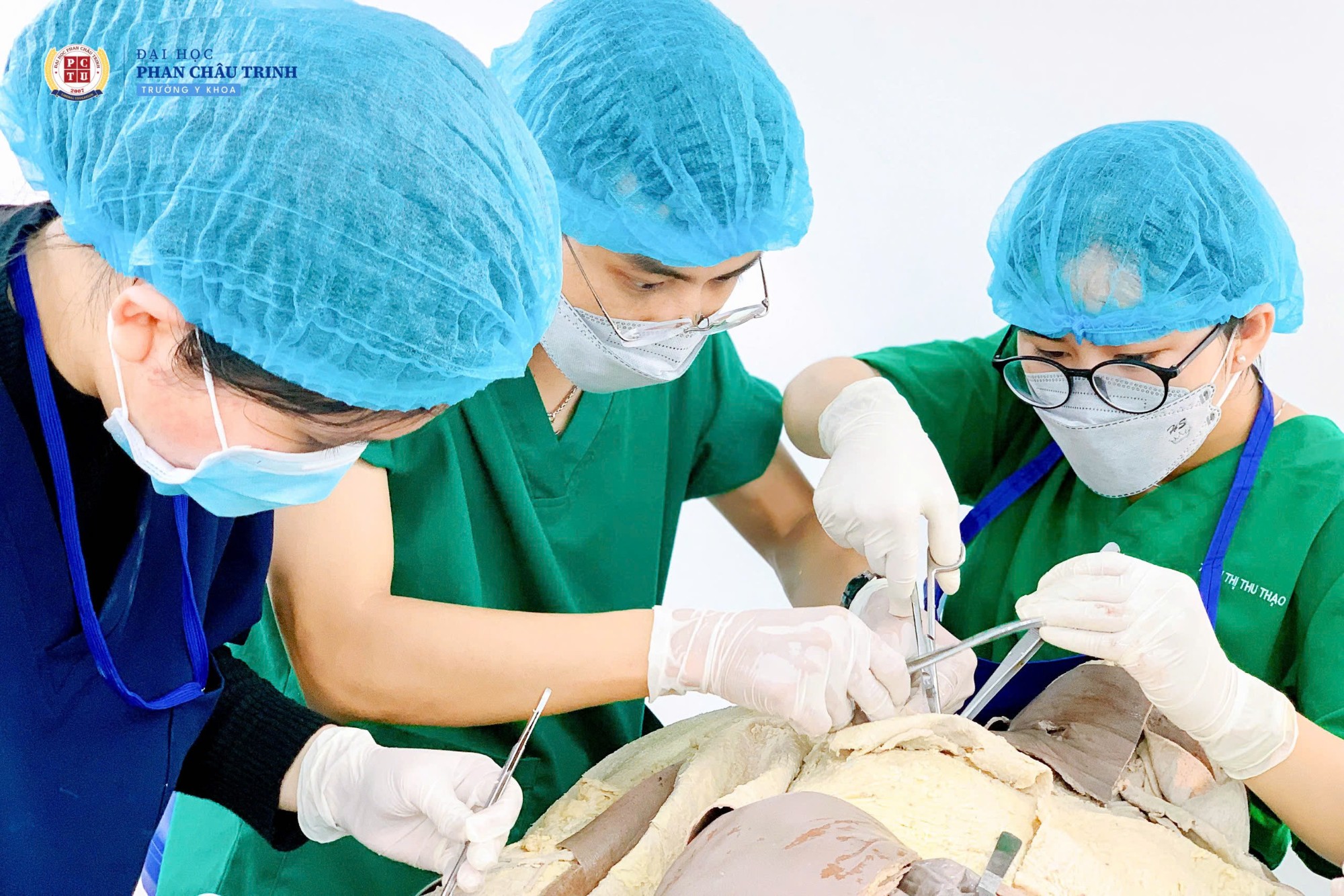 |
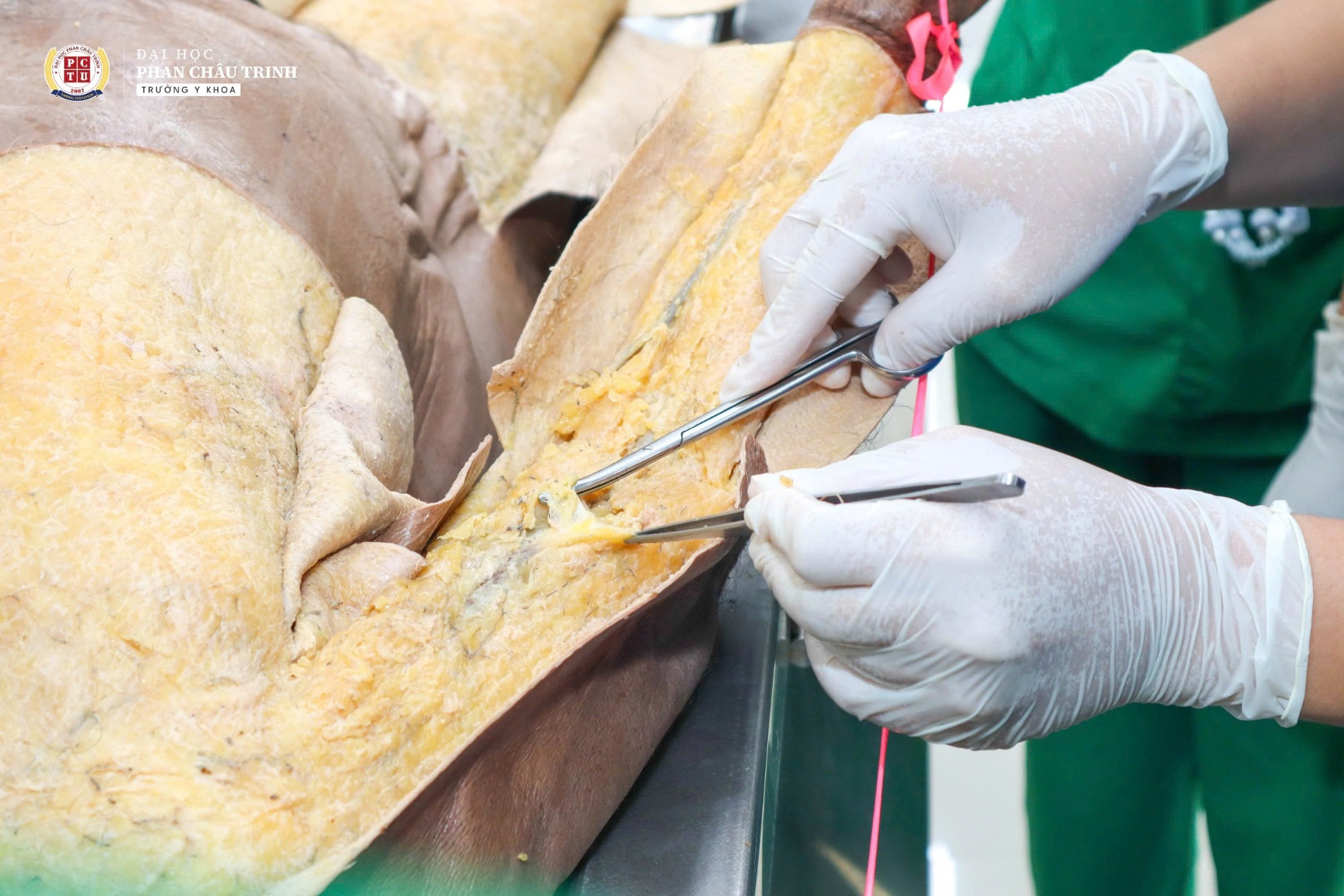 |
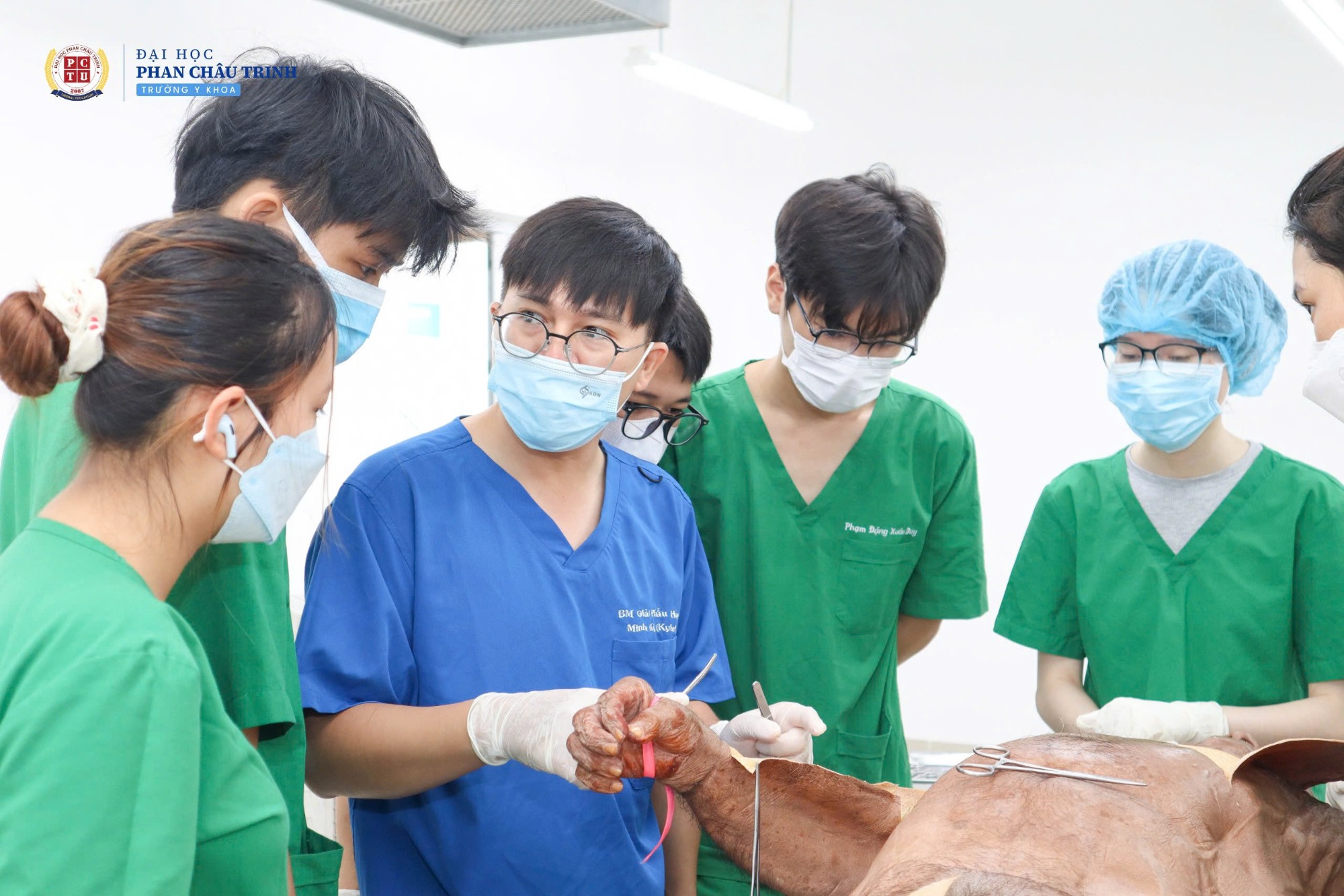 |
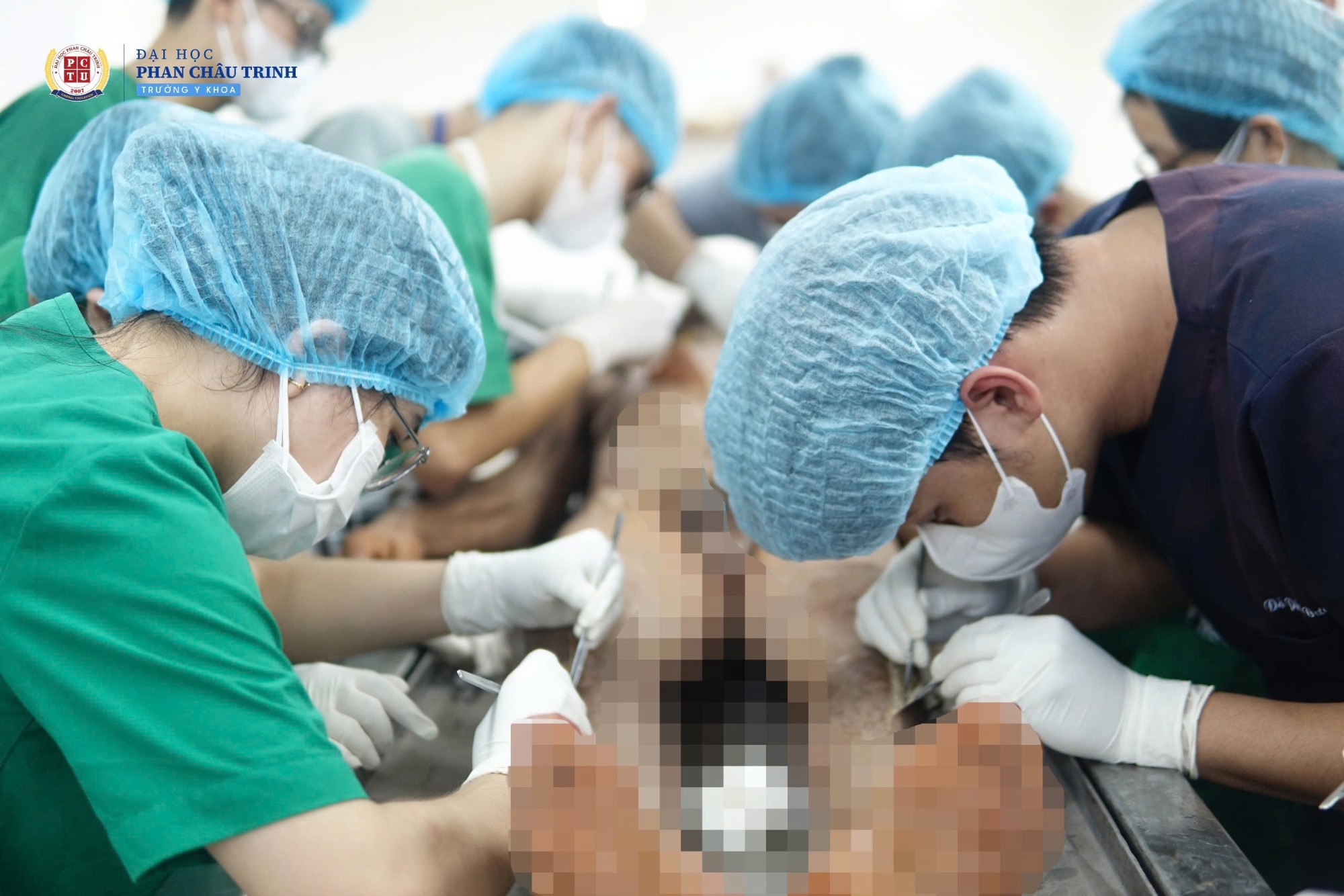 |
The Importance of Cadaver Dissection in Anatomy Education
Understanding Real Human Anatomy:
Cadavers provide precise anatomical structures, enabling students to identify the shape, location, and relationship between organs in the body. Unlike identical models, real human bodies exhibit variations that help students recognize individual anatomical differences, enhancing their observational and analytical skills for their future careers.
Preparing for Real-World Cases:
Cadaver dissection simulates real medical conditions, offering students an experience unattainable through books or virtual models. It fosters critical thinking, observational skills, and hands-on problem-solving, equipping them for clinical environments.
Building Emotional Connections and Professional Responsibility:
Working with cadavers instills a deep respect for the human body and fosters ethical professionalism. Students learn the value of contributions to medical science and the immense sacrifice of donors, nurturing empathy and responsibility essential for compassionate healthcare professionals.
Enhancing Practical Skills:
Cadaver dissection allows students to familiarize themselves with surgical instruments and techniques, providing foundational preparation for future procedures. This hands-on approach bridges theoretical knowledge and practical application, ensuring students are well-equipped for patient care.
Through its comprehensive curriculum combining theory and practical experience, Phan Chau Trinh University is committed to providing a robust learning environment that prepares students with the expertise and integrity needed to excel in the medical field.
Macchabee Ceremony: Honoring the Silent Teachers
 |
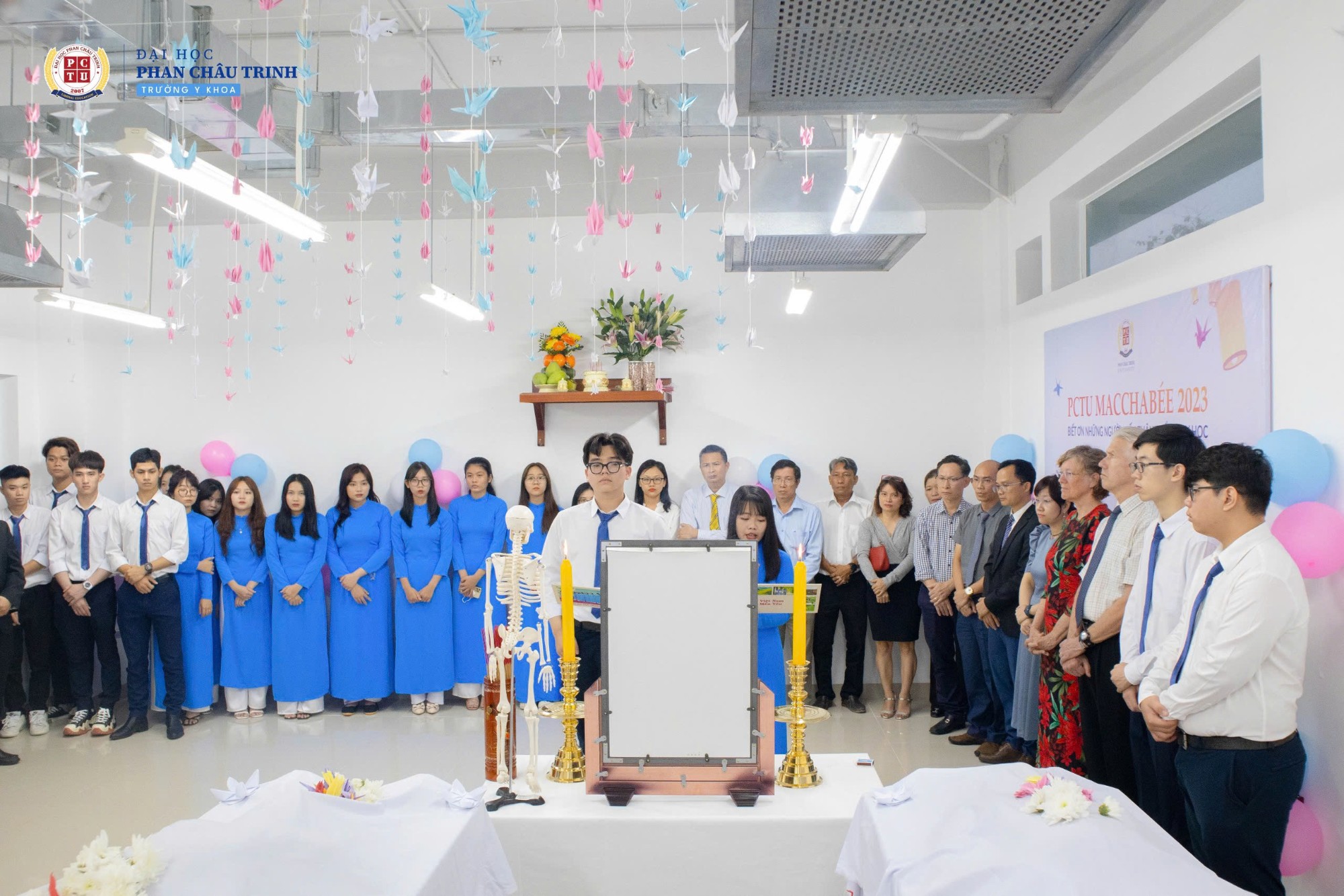 |
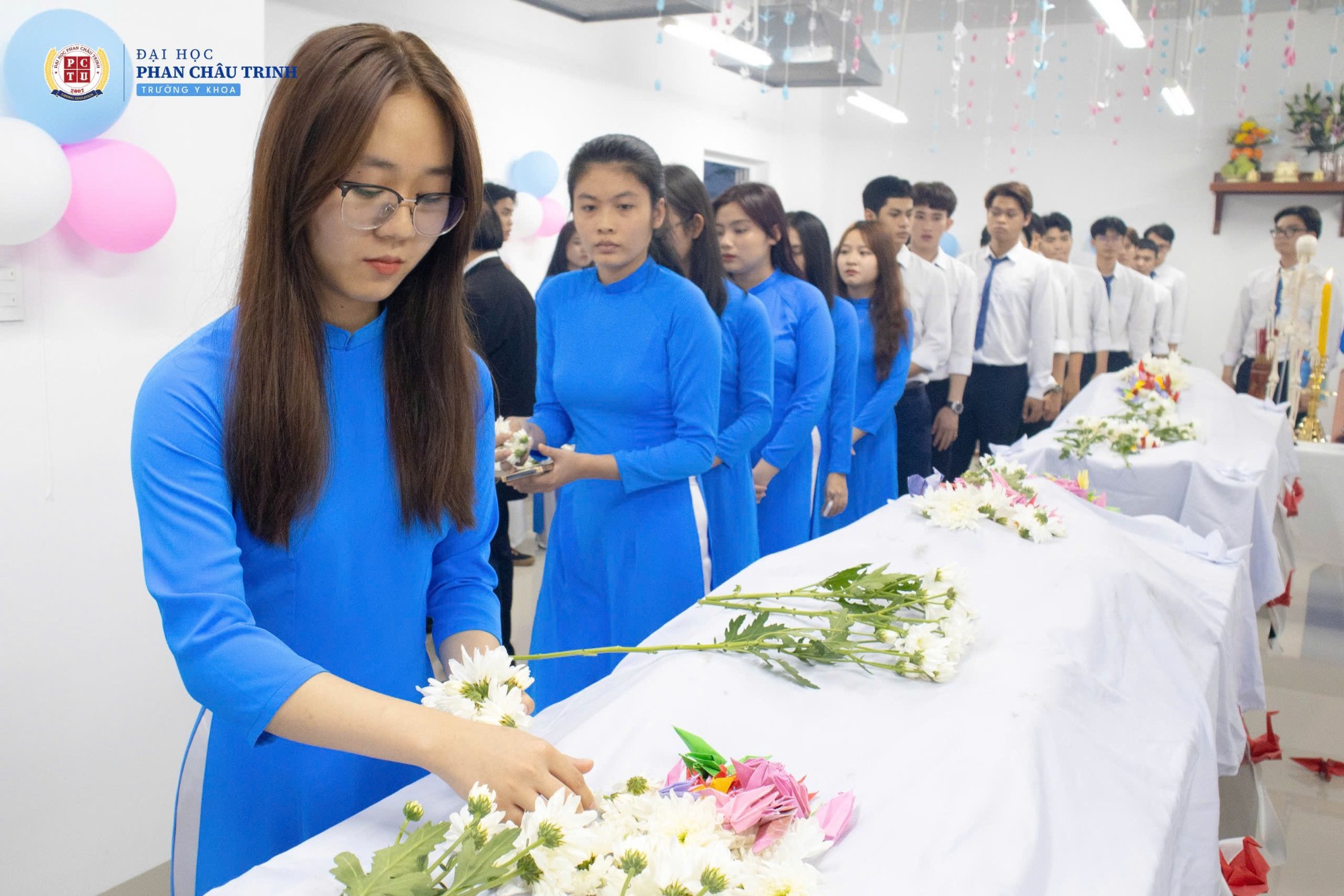 |
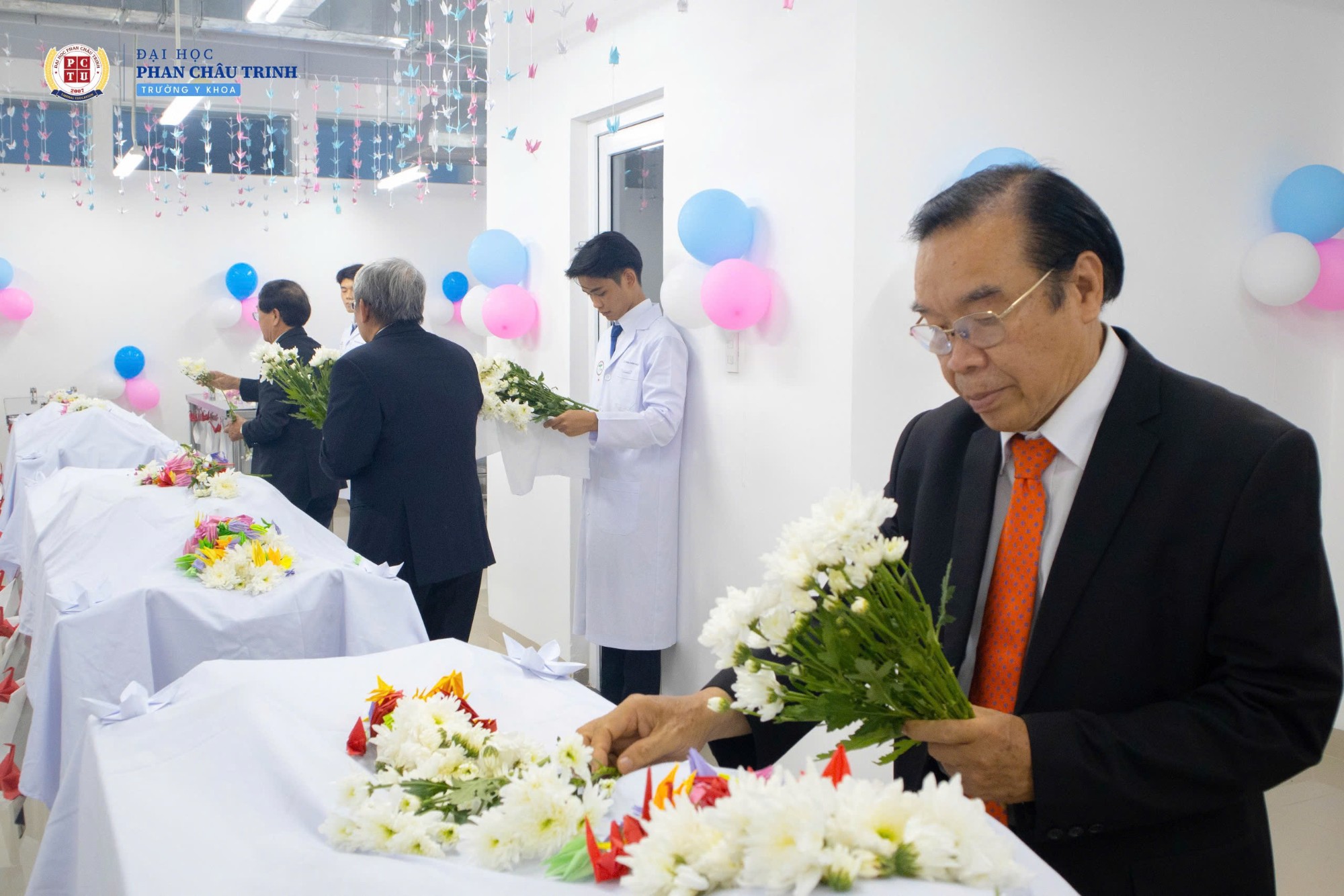 |
Donated cadavers are regarded as the "Silent Teachers" of all medical students. Each year, Phan Chau Trinh University students organize a special event, the Macchabee Ceremony, to express gratitude to these donors. This ceremony serves not only as a tribute to the donors but also as a lesson in gratitude, educating the Vietnamese community about the profound and timeless sacrifice of these individuals.
Macchabée, a cultural symbol widely recognized in Western countries, reflects diversity in rituals and artistic expressions. At Phan Chau Trinh University, the Macchabee Ceremony uniquely combines cultural values with its own distinctive characteristics, blending tradition and modernity to honor those who have dedicated their bodies to the advancement of medical education and research.
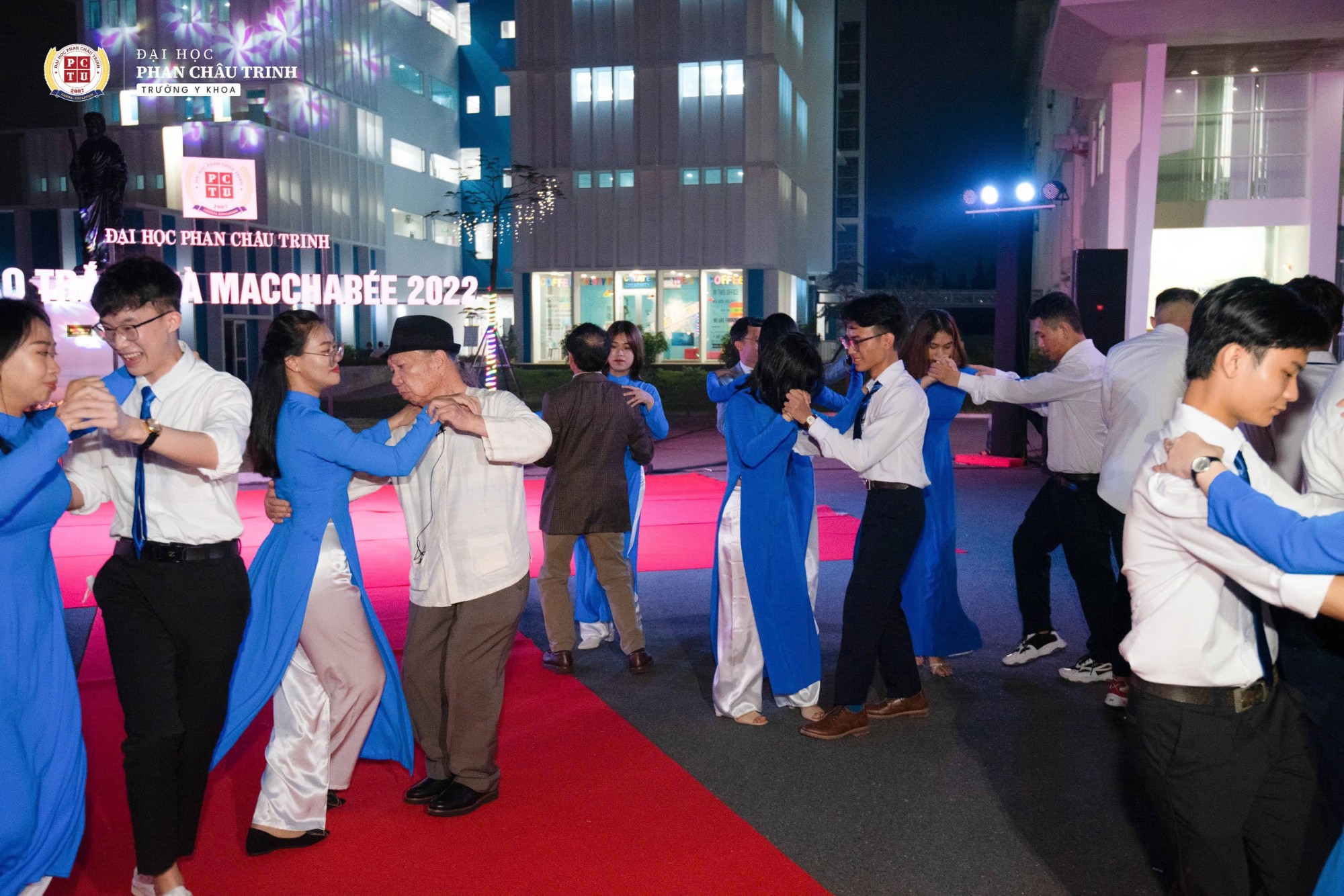 |
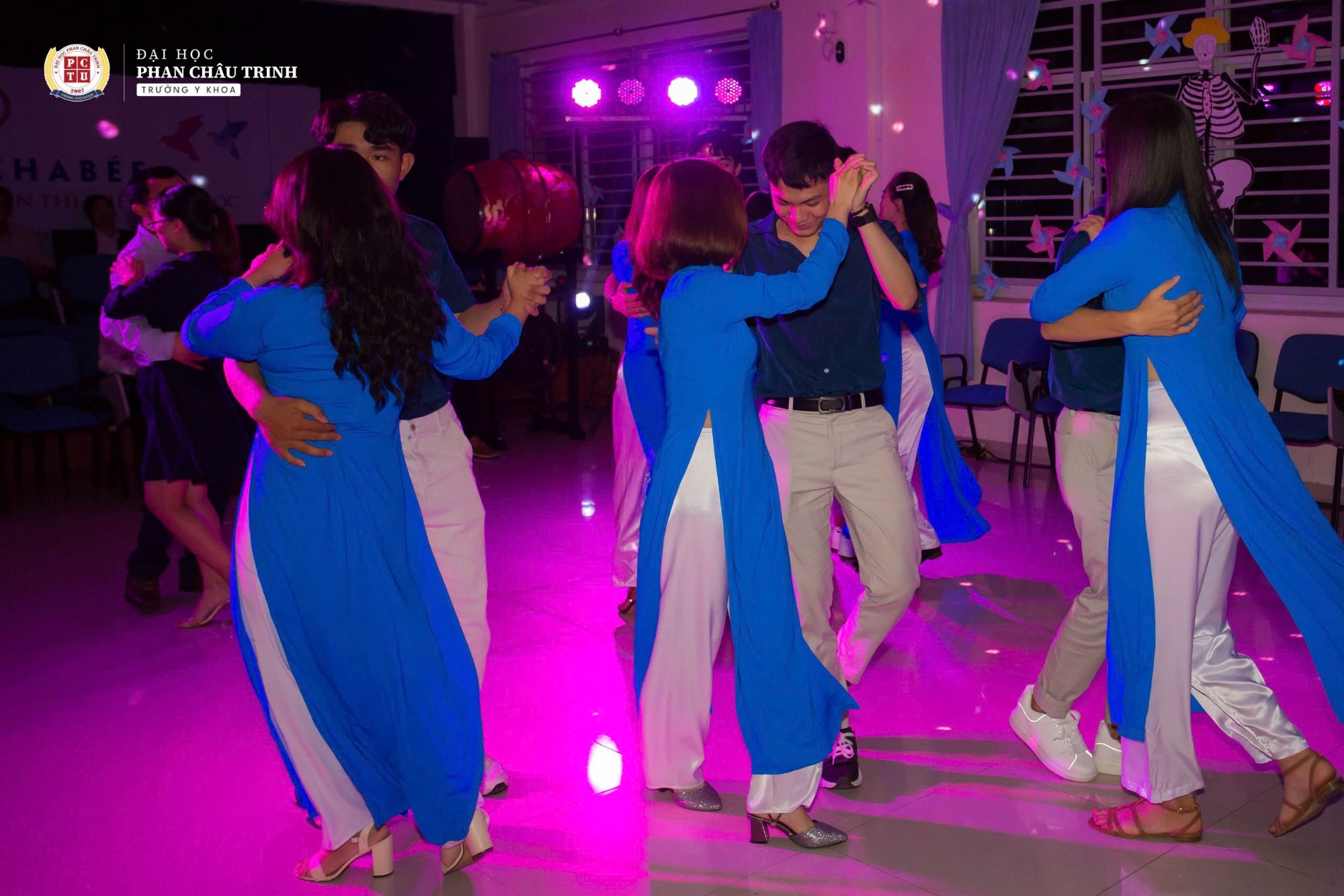 |
For furthur information:
- Programs
- Tuition and Fees
- How to Apply
- Facilities
- Activities & Experiences
- Student Life
- Follow us on Facebook
Contact us:
Admission Office:
- Mr. Nguyen Van Minh - Admission Office – Phan Chau Trinh University
- Address: 09 Nguyen Gia Thieu street, Dien Ban Dong ward - Da Nang city
- Tel: (+84235) 3 757 959 or +84.0981.559.255
- WhatsApp Number: +84.0981.559.255 or +84.0962.553.155
- Email: tuyensinh@pctu.edu.vn
- Fanpage: www.facebook.com/daihocphanchautrinh
Other admissions
- Phan Chau Trinh University Campus Overview ( 15:44 - 14/12/2024 )
- The Teaching Hospital System ( 16:19 - 16/12/2024 )
- The First Preclinical Skills Simulation Hospital in Vietnam ( 16:06 - 12/12/2024 )
- Apollo Medical Museum – The first medical museum in Vietnam ( 20:40 - 01/02/2026 )
- Reading Space at the Library – A Familiar Study Hub for Students ( 23:00 - 01/02/2026 )
- Dental Skills Lab ( 15:33 - 18/12/2024 )






